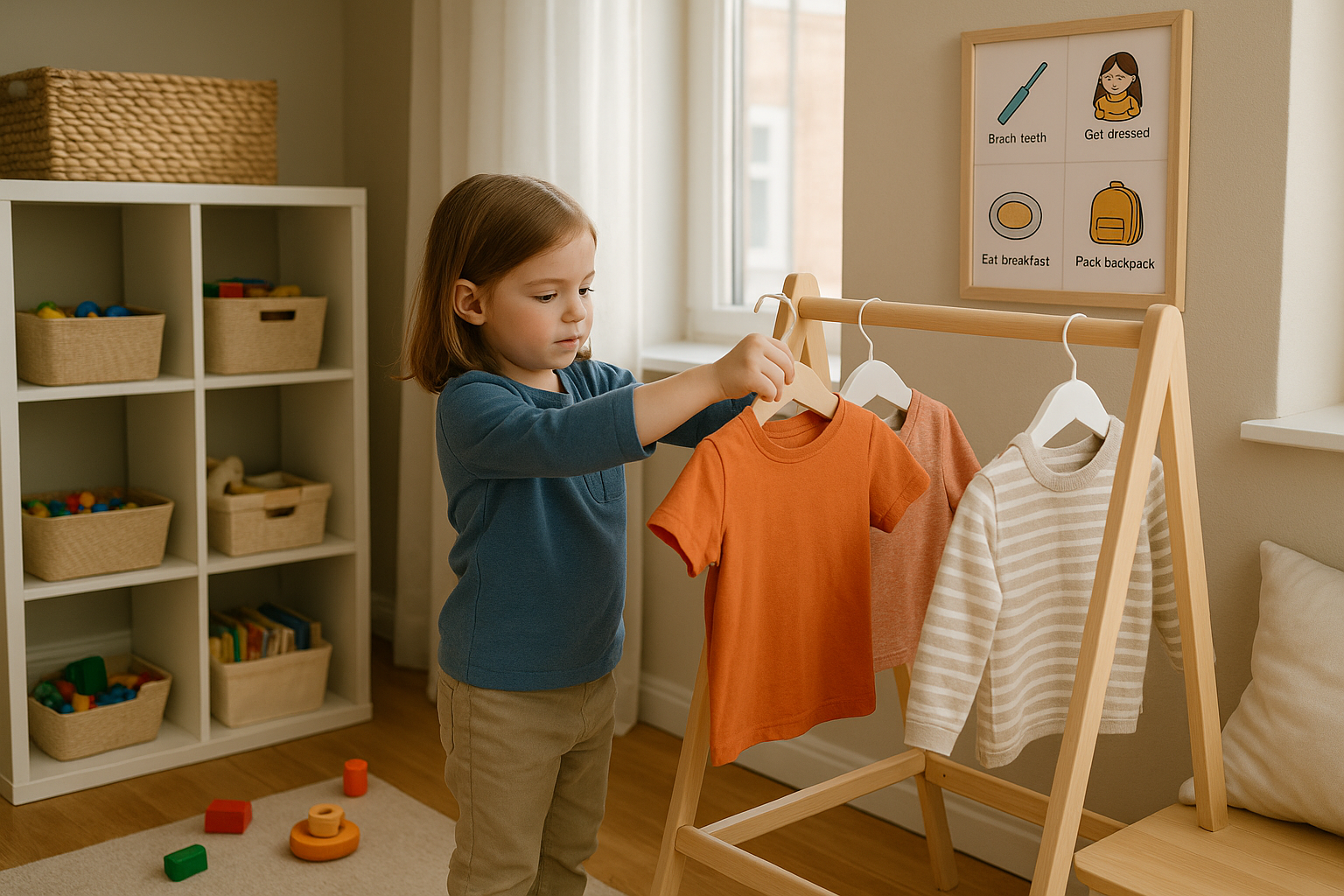One of the greatest gifts you can give your child is the confidence and ability to do things on their own. Encouraging independence during early childhood helps build self-esteem, responsibility, and critical thinking skills. While it may take more time and patience upfront, fostering independence lays the foundation for a capable, confident learner.
In this article, you’ll discover practical ways to promote independence at home in a supportive and age-appropriate way.
Why Independence Matters in Early Childhood
When children are allowed to do things for themselves, they learn to:
- Make decisions
- Take responsibility for their actions
- Solve problems
- Build resilience after mistakes
- Gain confidence in their abilities
These skills are essential for both academic success and everyday life.
1. Create a Child-Friendly Environment
Make your home a place where your child can safely and easily access what they need.
Ideas:
- Keep snacks in low drawers or shelves
- Use step stools in the bathroom or kitchen
- Store clothes at a level where they can dress themselves
- Use open bins for toys and supplies
Tip: Label shelves or drawers with words and pictures to support organization.
2. Give Them Choices (But Limited)
Offer your child opportunities to make simple choices throughout the day.
Examples:
- “Do you want to wear the red shirt or the blue one?”
- “Would you like an apple or a banana for snack?”
- “Do you want to read a book or play with blocks?”
This builds decision-making skills while giving a sense of control.
Note: Too many choices can be overwhelming. Two to three options are ideal.
3. Establish Routines and Visual Schedules
Consistency helps children know what’s expected—and what comes next.
Create a morning or bedtime routine chart with pictures:
- Brush teeth
- Get dressed
- Eat breakfast
- Pack backpack
Let them move a marker or check off each task. This builds responsibility and time awareness.
4. Teach Self-Help Skills Step-by-Step
Break down bigger tasks into small, manageable steps, and teach them patiently.
Skills to practice:
- Washing hands
- Brushing teeth
- Getting dressed
- Cleaning up toys
- Pouring their own drink
Celebrate progress, not perfection. Encourage them with phrases like, “I love how you tried that all by yourself!”
5. Encourage Problem-Solving
Instead of solving every problem for them, guide your child to find a solution.
Try asking:
- “What could you do instead?”
- “How can we fix this?”
- “Do you want help or do you want to try alone first?”
This encourages critical thinking and builds confidence.
6. Involve Them in Household Tasks
Children love feeling helpful and capable. Include them in simple chores appropriate for their age.
Examples:
- Set the table
- Water plants
- Fold washcloths
- Wipe spills
- Sort laundry by color
Tip: Make it part of the daily routine instead of a punishment.
7. Avoid Doing Things They Can Do Themselves
It’s tempting to jump in to speed things up, but every time you do something your child could do, you miss a chance to let them grow.
Instead of:
- Dressing them quickly, let them try
- Cutting up their food automatically, offer the utensils
- Cleaning up their toys for them, invite them to join you
Be patient—it takes longer at first, but leads to more independence over time.
8. Create “Yes” Spaces
Design spaces in your home where your child can explore freely without needing constant supervision or correction.
Examples:
- A toy area where everything is safe and accessible
- A craft station with age-appropriate supplies
- A reading nook with pillows and books at eye level
In these zones, they don’t need to ask permission—they can learn by doing.
9. Embrace Mistakes and Messes
Learning to be independent means things won’t always go perfectly.
Your child might:
- Spill milk while pouring
- Put clothes on backwards
- Struggle to zip a jacket
Instead of correcting immediately, offer encouragement and support. Mistakes are learning opportunities.
10. Celebrate Effort and Growth
Acknowledge your child’s attempts and progress.
Say:
- “You worked really hard to put your shoes on!”
- “You didn’t give up even when the zipper was tricky.”
- “I’m proud of how you tried that by yourself.”
Focus on the process rather than the outcome.
Growing Confidence Through Daily Practice
Independence doesn’t happen overnight—it’s built through daily opportunities, trial and error, and your gentle encouragement.
By creating a supportive environment and allowing your child the space to try, fail, and succeed, you empower them to become confident, capable individuals. And the bonus? Independent kids are often more cooperative, motivated, and resilient.
Let them take the lead in small ways each day—and watch their self-belief grow.
